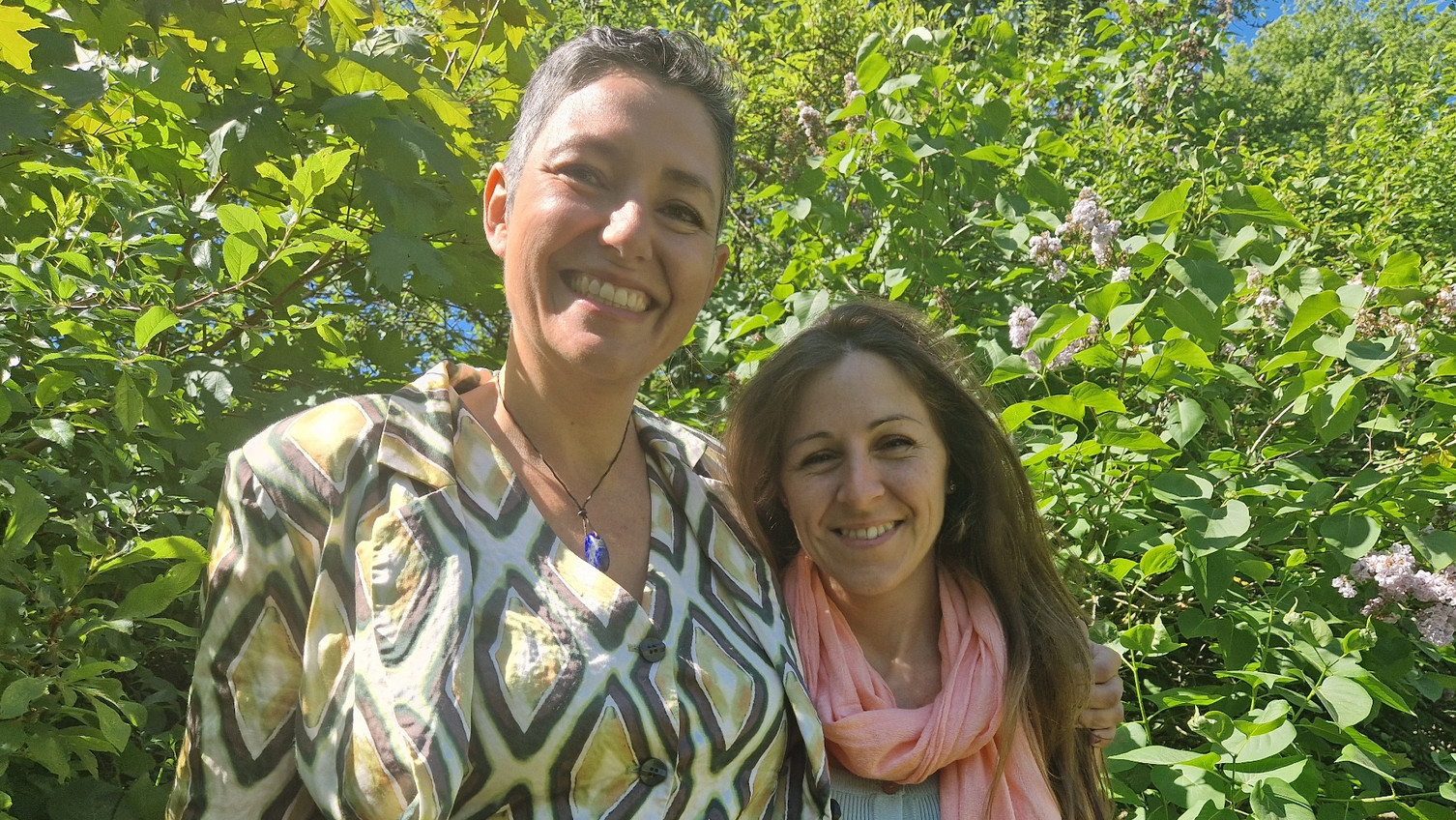Natali Lazzari is researching at Leuphana how the value of nature can be measured
2025-06-03 International networking promotes the quality of science and research. This applies to the development and implementation of research projects as well as to the handling of results. Prof. Dr. Berta Martín-López is committed to networking at Leuphana. She has now invited Dr. Natali Lazzari from Spain to Lüneburg as part of the European Commission's Horizon Europe programme.
How can we actually measure the value of nature? Dr Natali Lazzari poses the question: ‘When you go home, do you prefer to take a route under trees or along a road?’ There's no question about it: trees are much more attractive. As clear as the answer may be, it is only a first step towards exploring an important and comprehensive topic for the protection of our planet.
Natali Lazzari's research focuses on our oceans: international efforts aim to place 30 percent of the oceans under protection by 2030. ‘But how can this work without exacerbating existing conflicts surrounding their use and protection?’ asks the marine biologist. Traditionally, material interests and moral responsibilities to nature have underpinned marine conservation.
However, such material aspects alone cannot form the basis for developing effective protection strategies. ‘For these strategies to be successful, the importance of the relationship between humans and nature must also be taken into account,’ explains Lazzari.
At Leuphana University of Lüneburg, she is working on formulating a research question that will lead to actionable results – i.e., results that will contribute to international efforts to protect the oceans. ‘In doing so, the needs of marginalised groups must be taken into account,’ adds the researcher, referring specifically to the younger members of the fishing community.
During her stay, she will be working with Prof. Dr. Berta Martín-López. The professor of international sustainable development and planning at Leuphana is co-director of the Social-Ecological System Institute (SESI). ‘International exchange is not only important for innovation and creativity in our research, aiming at protecting nature,’ explains Martín-López, adding: ‘It is also important for the personal development of researchers, who can build up a strong network of collaborations and learn from research experiences in other environments.’ She has known Natali Lazzari for many years and has had the opportunity to collaborate with her in different research projects. Now, Martín-López has invited Natali Lazzari to Leuphana to further strengthen this collaboration.
Natali Lazzari's current project (Operationalisng relational values for a more equitable marine conservation-REVALSEA) is funded by the European Commission's Marie Skłodowska-Curie Actions (MSCA) within the Horizon Europe Funding Programme. Its aim is to create a strong pool of researchers and make Europe a more attractive place for scientists to conduct research. This is achieved by promoting networks for doctoral training, postdoctoral research stays, staff exchange programs, and mobility programs. The respective calls for applications are open to all topics. However, the researchers who apply must be internationally mobile.
Natali Lazzari is based at the University of Santiago de Compostela in Spain, where she is conducting her research project at the EqualSea Lab. She will spend four weeks in Lüneburg before continuing to Australia, where she will research novel modelling techniques to understand how people deeply connect with the ocean, and how that matters for its protection. After her stay at the Global Ecology Lab in the southern hemisphere, she will finally return to Spain to co-develop strategies with local fishers for integrating why they value nature into marine conservation. She will be accompanied by her 18-month-old child and her partner, who is also a researcher.

